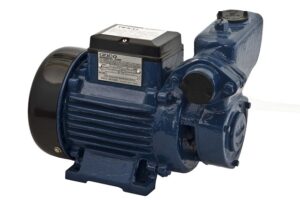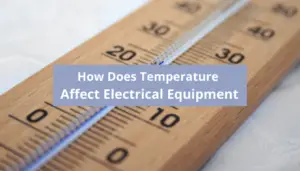Electric motors are widely used in various applications, from powering industrial machinery to running household appliances.
They are known for their efficiency and reliability. However, like any electrical device, there is a potential risk of fire. Yes, an electric motor can catch fire under certain circumstances. Overheating is one of the main causes of motor fires.
Understanding the causes of motor fires and implementing preventive measures is essential to ensure safety and minimize the chances of such incidents occurring.
Table of Contents
Understanding Electric Motors
Electric motors are devices that convert electrical energy into mechanical energy, producing rotational motion.
They consist of several components, including a stator, rotor, windings, and bearings. The flow of electrical current through the motor generates magnetic fields that interact with the rotor, causing it to rotate. This mechanical motion drives the motor’s intended function.
Causes of Motor Fires
Overheating
One of the primary reasons electric motors can catch fire is overheating. Several factors can contribute to excessive heat generation within a motor:
- Excessive electrical current: When a motor is subjected to electrical currents higher than its designed capacity, it can lead to increased heat production. This can occur due to overloaded circuits, voltage fluctuations, or faulty control systems. Regular electrical inspections and proper circuit sizing can help prevent excessive current and subsequent overheating.
- Mechanical friction: Friction between moving parts, such as bearings, gears, or brushes, can generate heat. If the motor is not properly lubricated or if there is excessive wear and tear on these components, it can increase the friction and heat buildup. Routine maintenance, including lubrication and inspection of mechanical components, can mitigate this risk.
- Blocked ventilation: Electric motors require adequate airflow to dissipate heat. If the motor’s ventilation system is obstructed by dust, debris, or improper installation, it can impede the cooling process and cause temperatures to rise. Regular cleaning of motor enclosures and ensuring proper ventilation can prevent overheating.
Read also my other article: Electric Motor Woes: What Causes Winding Burnout And How To Fix It.
Damaged Internal Components or Wiring Insulation
Faulty internal components or damaged wiring insulation can also contribute to motor fires. Over time, electrical insulation can deteriorate due to factors like moisture, heat, or mechanical stress.
When the insulation breaks down, there is an increased risk of short circuits, arcing, and electrical faults that can ignite surrounding materials.
Regular inspections to identify and replace damaged components or wiring are crucial in preventing such incidents.
Prevention and Safety Measures
To mitigate the risk of motor fires and ensure safe operation, it is important to implement preventive measures:
Regular maintenance:
Scheduled inspections and maintenance routines should be performed to identify potential issues early on.
This includes checking electrical connections, lubricating moving parts, and cleaning motor enclosures.
Adhering to manufacturer guidelines for maintenance intervals and procedures is vital.
Proper installation:
Electric motors should be installed according to the manufacturer’s specifications and guidelines.
This includes ensuring correct electrical wiring, grounding, and alignment. If the motor is installed in an environment with specific hazards, such as excessive dust or flammable materials, additional precautions should be taken.
Adherence to safety guidelines:
Following safety protocols is essential to minimize the risk of motor fires. This includes practicing good housekeeping, keeping the motor area clear of flammable materials, and providing appropriate fire suppression systems where necessary.
Employees should be trained on safe operating procedures and emergency response protocols.
Read also my article: Smoke Signals: What Causes Electric Motors To Smoke?
Conclusion
While electric motors are generally safe and reliable, it is crucial to be aware of the potential for fires.
Overheating, caused by factors such as excessive current, friction, or blocked ventilation, is a significant risk.
Additionally, damaged internal components or wiring insulation can also lead to motor fires. By implementing preventive measures, such as regular maintenance, proper installation, and adherence to safety guidelines, the risk of motor fires can be minimized, ensuring the continued safe operation of electrical systems and equipment.
Don’t Leave Empty-Handed!
Install my Free Android App on Google Play:
Electrical Cables Most Common Tables “Cables Tables”
And, my Electrical Calculations App “Fast Electrical Calculator”
Discover more great content by subscribing to My channel
Looking to stay ahead of the game in the world of electrical engineering? Subscribe to my YouTube channel and gain access to exclusive content you won’t find anywhere else!
The staff I recommend
(Amazon Affiliate Links to products I believe are high quality):
- Economy 120 Volt/60Hz AC Power Source – Step-Down Voltage & Frequency Converters 1800W
- UNI-T Digital Multimeter Tester UT139C
- 50-Amp Extension Cord for RV “100ft”
- Voltage Stabilizer 110/220v
- Hair Dryer “best selling“
- TOSHIBA EM131A5C-BS Countertop Microwave Ovens
Disclaimer: This contains affiliate links to Amazon products. I may earn a commission for purchases made through these links.


